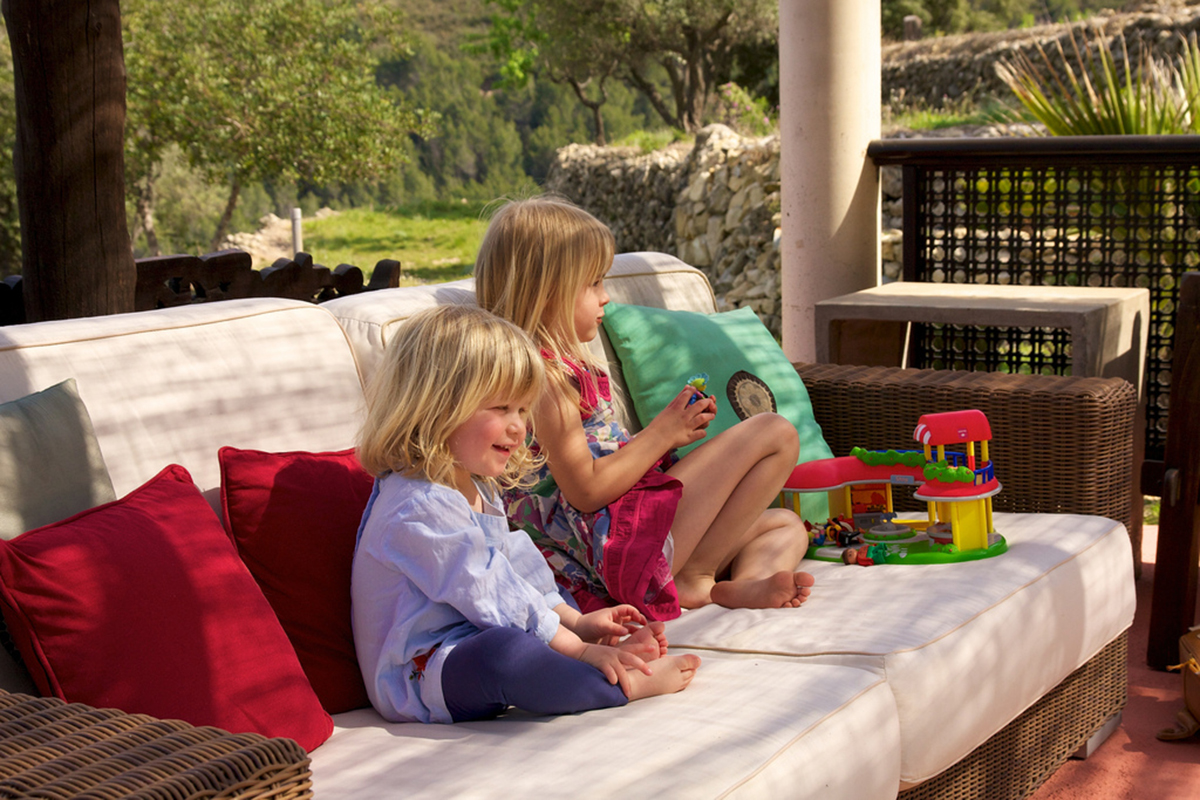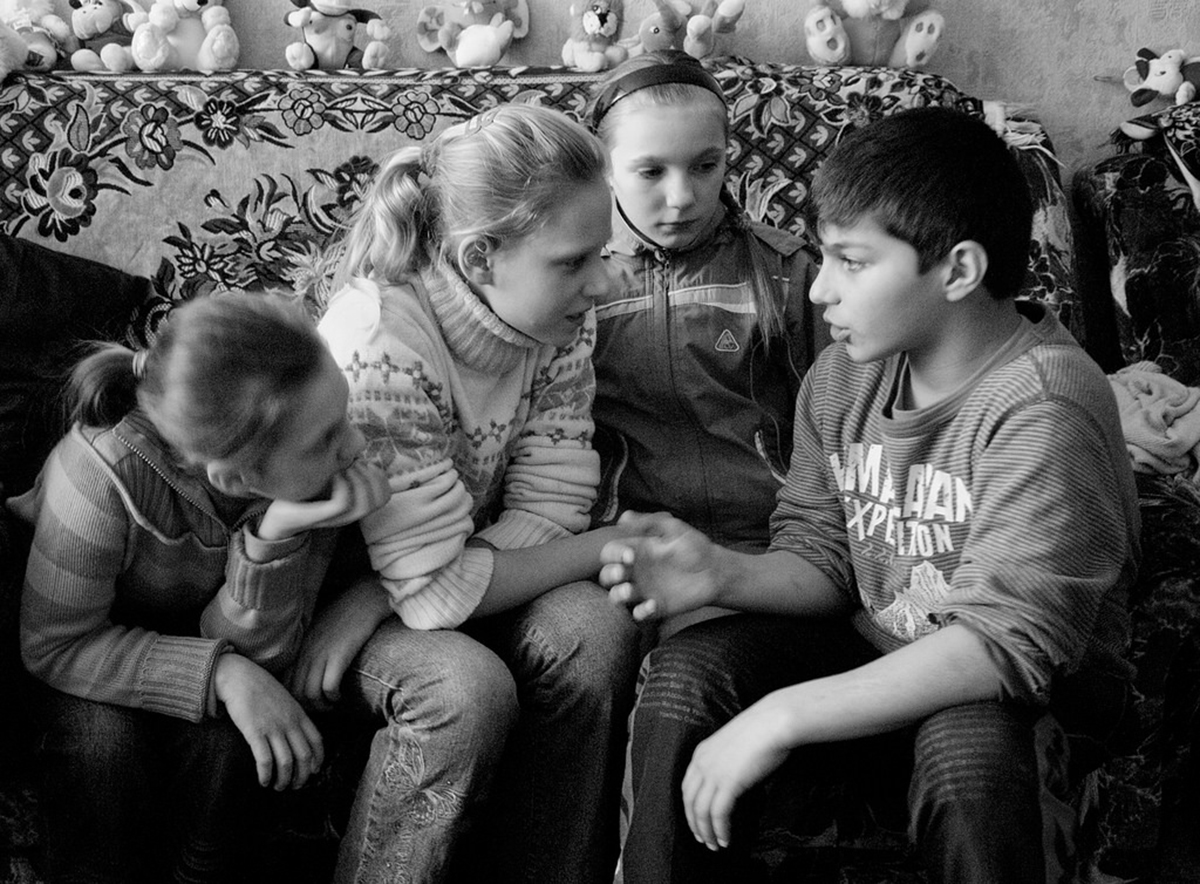"Death is hard for children to understand," many people will immediately say when you bring up the topic of discussing death and dying with kids. The truth, so often, more closely resembles this — death is difficult, death is difficult for adults to understand, the death of a loved-one hurts, and death is difficult for adults to discuss with children. Death is also an integral part of life. Unfortunately, no matter how much they hate the thought of discussing death and dying with their children, most parents will — at some point or another in their kids' childhoods — have to find a way to do it anyway.
Growing up — the daughter of a father who died a premature death — I knew of one case in which the dad of a boy whose mother had died of cancer found discussing death with his son so hard that he just didn't. "Just a little while longer," he must have thought, "I'll delay telling him just a little bit longer." The story went from "we can't visit her right now" to "she's been moved to another hospital that's much further away", for months. I don't know how he eventually found out that his mother was in fact dead, but I think I can imagine the betrayal he must have felt when he discovered he'd been lied to all that time.

How do you do it, though? Not only will you try to find ways to make the conversations you'll have age-appropriate, how you engage in these talks also strongly depends on the situation you find yourself in.
How Do Children Experience Death?
Children are, from a very young age, aware that death occurs. Let's not fool ourselves there. They've seen dead animals — even if just mosquitoes — and encounter human deaths in books and on television. They hear you talk to your spouse and others about a great many "adult topics" that we think go right over their heads too, and are so often capable of understanding much, much more than we give them credit for.
This is pretty crucial: though kids know much more than we think they do, they also sense when a topic is uncomfortable for us, when it's "taboo", and they may well adjust by not asking very important existential questions they are struggling with. When they feel they can't ask you, kids are left to deal with these issues alone. As parents, our first duty to our kids when they face dying and death is, then, to lay aside our own discomfort and to commit to discussing it fully.
READ Fear Of Death Sometimes Indicates A Healthy Prognosis
Experts hold that children's understanding of the meaning of death progresses with age:
- Toddlers and preschoolers may not have any grasp of the concept of permanency in general, and as such may see death as temporary as well.
- Children aged between five and nine do understand that death is permanent, and they may also cognitively be aware that all life eventually comes to an end, but aren't yet able to contemplate their own mortality.
- From age nine onward, children begin to deal with the meaning of life and death in a more philosophical way, pondering both the meaning of life and what — if anything — might happen after death.
Though knowing this can be helpful, it is also important to see children as individuals with their own experiences. A child who has already experienced the death of a loved one will have a deeper understanding of the meaning of death than one who hasn't, for instance.
Children And The Death Of Loved-Ones: More Tips On How To Handle This Part Of Life
Straight-Talk: An Advised Approach
Psychologists nearly unanimously agree that a "straight-talk" approach to death and dying is best. When you use flowery language such as "he went to sleep", "she has gone to heaven", "grandma is in a better place now", or "they passed on", you may leave your child facing many unanswered questions. Without a semi-scientific explanation of what death means, you also risk leaving your young children with a fear of going to sleep or a fear that the same could randomly happen to them for no reason.

Your kids may ask many questions, regardless of whether they are generally curious about the concept of dying, have recently experienced a loss, currently have a dying loved-one, or are gravely ill themselves. Don't be afraid to convey your own beliefs about what happens after death to your children (though know they may believe differently as well!), don't be afraid to acknowledge that this is a hard topic for you to discuss, and don't be afraid to admit that you don't know the answers to some of the questions your kids ask. When the discussion becomes hard, say so but continue to answer. Make sure that your kids know that when they want to talk or have questions, they can always come to you. This way, they will know that they will not have to deal with these very hard feelings all on their own. At the same time, give them a break from hard topics and just play, eat, and cuddle.
Finally, some parents prefer to start off with basic levels of information and to follow up on those conversations simply by answering a child's questions. So long as you make it clear that you are very willing to answer all questions, this approach ensures that your child will get the exact amount of information they need — and no more. Be sure to also listen to your kid's requests to change the subject, however.
READ Top 10 Junk Food-Related Deaths
Should Children Visit Dying Loved Ones And Attend Funerals?
This, too, is a contentious topic, something that comes from the perception that children should be shielded from the fact that death happens, and shielded from difficult life experiences in general. However, both visiting a dying loved one and attending a funeral can offer a child the ability to say goodbye and to achieve closure. In order to make these experiences cathartic rather than traumatizing, here are some tips:
- In the case of a dying loved-one, always ask them whether they would like to see the child first
- Tell your child what to expect from the experience in as much detail as they ask for
- Tell your child in no uncertain terms that it is not only OK, but perfectly normal, to be upset, to cry, to grieve
- Ask your child whether they would like the chance to visit a dying loved one or to attend a funeral, and respect their wishes if they say no
- If you do go, talk about the experience together afterward
- Photo courtesy of dickdotcom: www.flickr.dickdotcomcom/photos/dickdotcom/7069037587/
- Photo courtesy of santea: www.flickr.com/photos/santea/5414477900/
- Photo courtesy of santea: www.flickr.com/photos/santea/5414477900/


Your thoughts on this